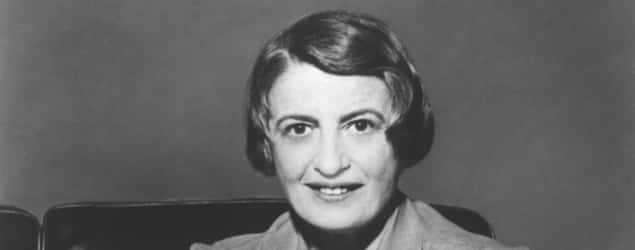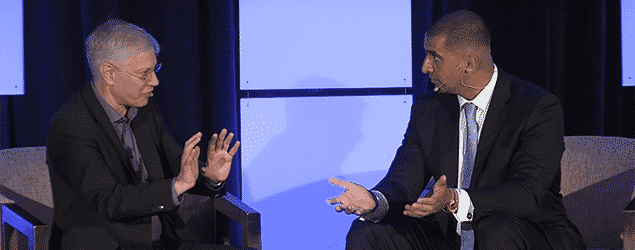The 112th Anniversary of Ayn Rand’s Birth

Today is Ayn Rand’s birthday. Although Rand is known for her best-selling novels The Fountainhead and Atlas Shrugged and works of nonfiction like The Virtue of Selfishness and Capitalism: The Unknown Ideal, her actual views are still largely unknown or misunderstood.
If you’re reading this blog post, you’ve made your way to the website of the Ayn Rand Institute, where it’s easier than ever to learn about Rand’s life, works and ideas — and how they apply to today’s issues.
AynRand.org is a great place to get an overview if you are new to Ayn Rand. However, if you would like to study her works and ideas in greater depth, then you should check out ARI Campus — the ultimate online resource for the serious student of Ayn Rand’s philosophy of Objectivism.
On ARI Campus there is a wealth of material: articles, talks, lectures as well as multiple courses covering everything from the meaning of capitalism to art. There is something for everyone: beginners and advanced students. There is also an online version of The Ayn Rand Lexicon where you can get a taste of the Objectivist perspective on more than four hundred topics.
Curious to know more about Rand’s life? Here’s her bio:
Born Alisa Rosenbaum in Tsarist St. Petersburg in 1905, Rand witnessed the Russian Revolution as a teenager and promptly condemned communism as immoral for sacrificing the individual to the collective. In 1926, shortly after graduating from the University of Leningrad, she fled to America, adopting the pen name Ayn Rand to shield her family from possible persecution once her anti-communism became well known.
In Hollywood, she wrote scenarios for famous director Cecil B. DeMille and met her future husband on a movie set, but the couple struggled financially for years. Then came a string of writing successes: a Broadway play, followed by her first novel, We the Living (1936), then a novella called Anthem (1938), and later her first best seller, the story of a fiercely independent architect named Howard
Roark in The Fountainhead (1943). All these works of fiction feature gripping stories and exalted, egoistic, this-worldly heroes.
In writing Atlas Shrugged (1957) — the story of a man who said he would stop the motor of the world, and did — Rand had to define fully her new philosophy of reason, rational self-interest, and laissez-faire capitalism.
Thereafter, and until her death in 1982, Rand amplified and explicated her “philosophy for living on earth” in a stream of books whose theoretical essays and cultural commentaries cover important topics across the five major branches of philosophy: metaphysics, epistemology, ethics, politics and esthetics.



